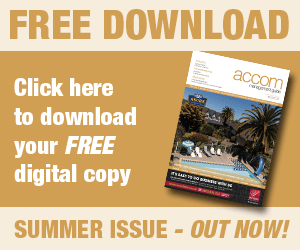Awatuna Homestead
- Details
- Published Date
Striving for optimum energy efficiency and being more environmentally conscious in the day-to-day running of their business is increasingly becoming a key factor for accommodation providers around New Zealand.
Not only for the cost benefits that arise, but also because it's what many guests are now looking for, especially those from European countries where environmental concerns are widely shared.
For Hemi and Pauline Te Rakau of Awatuna Homestead on the South Island's West Coast, however, caring for the environment has been an integral part of their lives for the last 40-plus years. They see it as simple commonsense and, as Hemi says bemusedly, "We assumed that everybody was doing it. We've always cooked on a wood-fuelled stove and stored our own water like many rural folk."
The couple turned their family home, the historic Awatuna Homestead (built in 1874), into an accommodation facility in 2000, having rebuilt it in 1995, following a devastating fire the year before. Their lifestyle has always been shaped by a constant focus on the environment, energy and water conservation, planning and management. And as Qualmark-recognised hosts, it means finding a balance between conservation of resources while ensuring guests are comfortable, warm, and have everything they need.
The winter months can be cool on the Coast, so during the re-build they replaced their original Shacklock black iron stove with an Esse Sovereign model, which has now been running for 16 years. "We grow our own timber to burn in the Esse," says Hemi. "We grow several exotic species – pine, macrocarpa, oregon and eucalyptus gum, which we cut down after 20-plus years, log, split and dry."
Pauline uses the Esse for most of her cooking and the heat from the stove also drives the boiler that supplies the 22 hot-water radiators sited in all the rooms around the two-storey homestead where accommodation is provided for up to 10 guests in three double bedrooms and a two-bedroom apartment. Excess hot water is also piped into the bedrooms to provide underfloor heating.
While solar water heating is being introduced into some accommodation properties around New Zealand, for Hemi and Pauline at the time of the re-construction in 1995 it wasn't an option.
"We costed it out, but the initial outlay 16 years ago just wasn't commercially viable," says Hemi. "If we were rebuilding again today we would consider solar water heating as the costs have reduced as technology has improved and the world is more ecologically expectant. At $26,000 to install it at that time, it was way beyond our budget and just wouldn't have paid for itself."
In a conscious decision with regard to controlled usage in a guest-house setting, hot water for visitor bathrooms is provided with gas-powered calafont heaters, which supply instant hot water.
"For us to provide water hot enough for baths and showers on demand, which complied with health regulations at all times, gas was the best option," says Hemi.
All the water used at Awatuna Homestead is sourced from rainwater, which is collected in large tanks and piped through micropore filters to the Homestead without the use of chemicals or additives. Grey waters from the laundry are piped to the tree and native bush areas where the nutrient uptake benefits the environment. A well-maintained septic tank and stone-field system takes care of the human waste.
Hemi and Pauline's commitment to the environment is also demonstrated in their housekeeping practices.
"We try and buy local as much as possible," says Pauline. "We buy cleaning products in bulk, manufactured on the Coast. While they are not always as ecologically well-known as some brands, I prefer to buy them here rather than freight them down from Auckland, which would add to the national freight and pollution levels. We also use the Swedish Enyo brand of cleaning cloths and implements, which are specially woven for the tasks and totally reusable."
While caring about the environment has always been an instinctive part of their lives, it has also brought its rewards for Hemi and Pauline. They have recently achieved the Qualmark Enviro Gold status in the national Regional Tourism Initiatives section.
"Qualmark assessed us for energy efficiency, environmental responses to many fields, and resource usage across many criteria," says Hemi. "We have entered for the Qualmark Award every year since we started the business and have been awarded silver the last two years. We were very pleased to attain the gold in recognition of what we are achieving at the Homestead, in meeting and exceeding the expectations for our international guests and ourselves. Our life focus on our place in the environment is what our parents and ancestors have always done in teaching us and we have inherited their teachings. By continuing those practices we honour them and in following commonsense rules across our cultures we are achieving sustainable balance for life."


